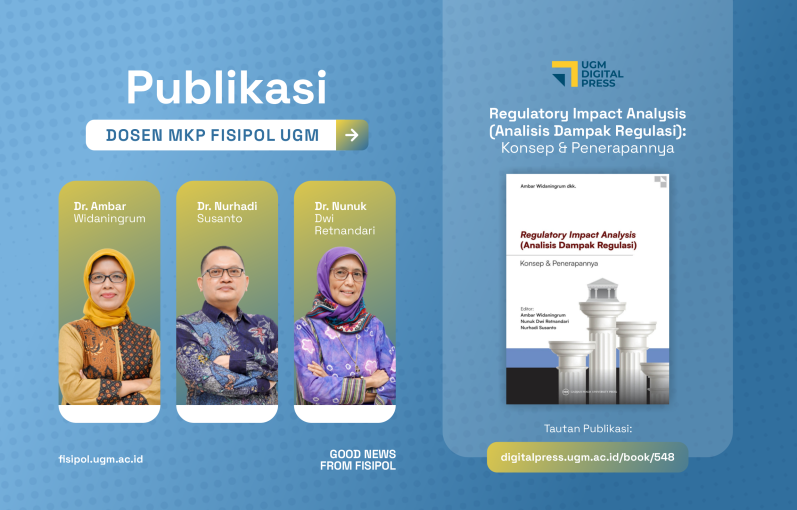
Yogyakarta, July 10th 2024–The latest book publication, titled “Regulatory Impact Analysis: Concepts & Implementations,” offers guidance through one of the approaches in public policy in minimizing the impacts of policy implementations. This book was just published on the 27th of May 2024 by the UGM Press Team and is a collaborative result between three lecturers from the Department of Public Policy and Management, namely Dr. Ambar Widaningrum, Dr. Nunuk Dwi Retnandari, and Dr. Nurhadi Susanto.
Dr. Ambar Widaningrum, as one of the authors of this book, mentioned that this book can offer a new perspective through its Regulatory Impact Analysis (RIA) approach. “This book supplements a variety of review methods for public policy, especially reviews related to risk mitigation efforts that might happen when policies are implemented,” she stated on Wednesday (10/07).
This book also dissects the importance of the RIA approach mentioned before, starting from the formulation phase to the policy implementation phase. It should be remembered that the dynamics of policy-making is highly dependent on the process of regulation design, which will influence the quality and result of said regulation. However, at the policy intervention phase, the government often does not consider the possible impacts if those policies were to be implemented. We can see this often when the government rolls out unsustainable regulations and overlapping policies. As a result, the basic problems of the public cannot be solved efficiently, like corruption, unemployment, and poverty. Therefore, the RIA approach is important in reviewing public policies.
Furthermore, the book also tries to give a thorough explanation on the dynamics of the policy-making process.
“What is more important, is that the process of public policy formation does not happen in a neutral space. Various factors, such as the individual, organizational culture, and the environment of the policies themselves can give criticism and work as the basis for public policy-making,” said Ambar.
This is what makes policy-making interesting, as the process of policy formation cannot be separated from politics. Meanwhile, policy analysis is done in a technocratic manner. Therefore, the approach of RIA, as a technocratic product of analysis, must be able to convince itself to users, decision makers, and politicians.
Not just that, Ambar also gave hope for the publication of this book as a reference for policy analysis, especially as a base for formulating quality and evidence-based policies.The book “Regulatory Impact Analysis: Concepts and Implementations” can be bought using this link.
